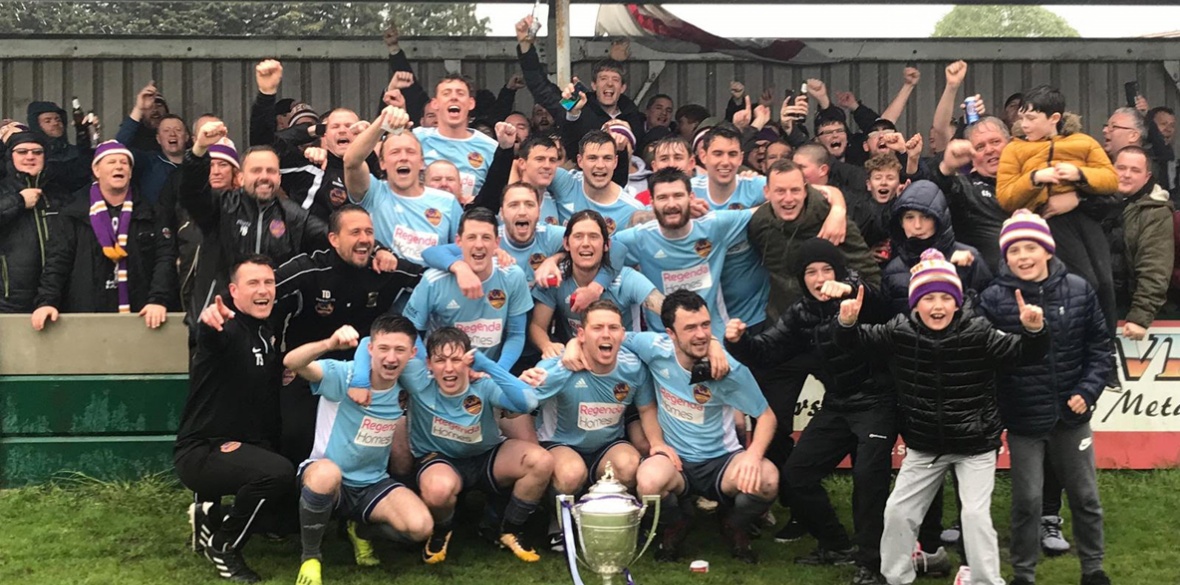This is the last article you can read this month
You can read more article this month
You can read more articles this month
Sorry your limit is up for this month
Reset on:
Please help support the Morning Star by subscribing here
THE idea for a supporter-owned club within the city of Liverpool dates back to 2008, although the socialist principles on which City of Liverpool FC is built go back much further.
In the six years that followed, before plans became concrete, casual discussions were taking place forming an ideology for a football club which, at the time of those chats, might have seemed like little more than theory.
But when these theories are so ingrained in a particular area and among the people in it, with hard work and perseverance these ideas can be turned into actions, and theories into practice.
In 2014, a “call to arms” was sent out to like-minded supporters and a first meeting arranged, collecting thoughts from those earlier, less formal chats. It was decided that further discussions should take place and a plan of action formed.
A second meeting, a month later, between Paul Manning, Peter Furmedge and Martin Jones asked the question: When is this football club actually going to play football?
The answer was July 2016, but the years leading up to that important meeting in November 2014, and then the first game — a friendly against Prestatyn Town on July 9 2016 — had already set the tone for what this club would become.
It’s perhaps no coincidence that 2008 was also the year the Liverpool FC supporters’ union, Spirit of Shankly, and the breakaway club AFC Liverpool were formed, coinciding with the toxic ownership of Tom Hicks and George Gillett at Liverpool FC.
But City of Liverpool’s origins lie not in protest against one club, rather in an attempt to give football fans in the city, red, blue or otherwise, a chance to watch football and feel a connection with a club which represents them.
“We want people to actually enjoy watching a game of football again,” COLFC chairman Paul Manning wrote in the club’s first-ever matchday programme.
“The Premier League has sucked so much joy and laughter out of supporting your team that it almost beggars belief that people are still willing to part with their hard-earned cash to be treated with almost utter contempt by the powers that be.”
Logos, names, club colours, an online presence, potential grounds and various administrative tasks were all included on a timeline for the new club going forward, as well as the hiring of a manager who would then assemble a squad of players. The aim was to join the league ladder at Step 6.
In 2015, an application was made to join the North West Counties Football League by the December 31 deadline, only for it to be rejected by the FA who instead allocated the club to the Liverpool County Premier League on Step 7 of the league ladder.
The late resignation of Northwich Manchester Villa from North West Counties Division One meant that an appeal against the decision made sense, as there was now space for another team on Step 6, and City of Liverpool FC were ready to go.
Club directors Manning and Furmedge attended the appeal hearing at Wembley Stadium on June 8, 2016, faced by representatives from the FA Leagues Committee who defended their original decision to place the club at Step 7.
“An hour of legal-esque arguing later, and we head back to Liverpool with the promise of a decision later that day,” recounts Manning.
“Our heads are spinning. We got attacked for 45 minutes, but the tide did seem to turn our way in the last 15.
“We miss trains, give first aid to a passing sickly woman in Gerrards Cross, eat Subway sandwiches in Bicester and walk across Birmingham from Moor Street Station to New Street Station to catch the train home, all the while checking our phones for the fateful email.
“It’s been three-and-a-half hours now and nothing. This looks and feels bad. We’ve got 45 minutes to kill, so let’s go for a pint. Just as we walk into All Bar One the email arrives.
“Peter begins reading through the Appeal decision.”
“‘Appeal Board at Wembley … Three-man committee … the decision of the Appeal Board…’
“Yes, yes, come on…”
“‘The appeal is upheld. Appeal fee to be refunded. City of Liverpool FC will play at Step 6 in the 2016/17 season.’
“Cue jubilation. With a lot of Birmingham office workers staring at two middle-aged scousers jumping up and down, hugging each other, and shouting ‘YES!’ very loudly.
“We had the decision we had worked so long and hard for and the relief was palpable.
“We had achieved our dream and that jubilant moment in a mundane bar in Birmingham was the end of the beginning of City of Liverpool FC.”
A month and a day after that appeal at Wembley, the club were playing that historic first game on the North Wales coast.
“We urge you all, young and old alike, come along to watch City of Liverpool FC and have a good time again,” Manning added in those programme notes, and the message remains the same to this day.
The original draft of those notes was rounded off with a quote from the Karl Marx essay, Reflections of a Young Man on the Choice of a Profession.
“History calls those men the greatest who have ennobled themselves by working for the common good; experience acclaims as happiest the man who has made the greatest number of people happy.”









